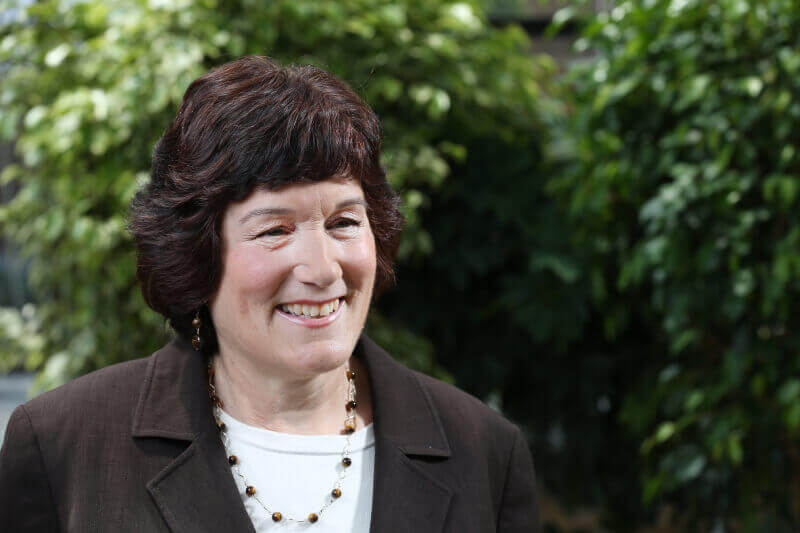April 17, 2019
What will the next 150 years bring for the College of Agriculture?
 Karen Plaut, the Glenn W. Sample Dean of Agriculture. (Photo provided)
Download image
Karen Plaut, the Glenn W. Sample Dean of Agriculture. (Photo provided)
Download image
The sesquicentennial celebration marks a time for Purdue to renew its commitment to growth, discovery and innovation. What giant leaps will the next 150 years bring as Purdue continues its drive to meet the world's future challenges? In this monthly Purdue Today series, Purdue's deans will share their thoughts on the future of their college over the next 150 years. The series continues with Karen Plaut, the Glenn W. Sample Dean of Agriculture.
What will the next 150 years bring for the College of Agriculture?
As the world’s population grows over the next 50, 100 and 150 years, the agricultural system will need to produce exponentially higher amounts of affordable, nutritious food. At the same time, changes in air, land and water use and quality, transportation, urban and rural demographics, economic and political stability, and consumer perception will all affect our ability to build a sustainable and secure food production system. These challenges will span decades and generations, rich and poor, and it will take all of us working together around the world to build an environment that looks different in the future than what it is today.
We will continue to develop digital tools that will enhance crop and livestock production, improve food quality and nutritional value, reduce food waste, improve our forests and streams, streamline supply chain logistics, and much more. Artificial intelligence and machine learning will help us interpret situations and make intelligent decisions based on the current knowledge. However, to develop new knowledge, we need to spur new innovation. At Purdue, innovation across all missions will set us apart in the next 150 years. Across our land-grant mission, we will encourage our scholars to think big and continually and proactively generate passion and excitement for new ideas for agriculture, food and natural resources.
In our teaching, we will examine how we can improve the student learning experience. We will inspire our undergraduates to become the leaders for the future. We will provide a strong disciplinary foundation and a well-rounded education that is diverse and inclusive built on societal issues of the day. We will encourage students to make an impact by providing opportunities to work in teams, interact with people of different cultures and integrate lessons from research and Extension. Boilermakers will have the skills to think beyond today’s use of digital tools and autonomous technologies to the next innovations -- ones that we have not yet imagined.
As a global land-grant institution, we will address grand challenges in our world. Our researchers will ask fundamental questions about how systems work in plant science, animal science, agricultural and biological engineering, natural resource management, and more. They will also address the pressing issues of the day so that our agricultural system can thrive. With Extension, we will take research-based solutions to the community for implementation and to inform the next set of questions.
The solutions to the world’s grand challenges will not come from a single scientist or student. We will engage and inspire faculty, staff and students across the University to converge across disciplines to address basic and applied problems. Convergence is not easy -- it requires people to be willing to listen to others and to be open to new solutions. It requires community and industry engagement to lay the groundwork for continuous improvement. Convergence often leads beyond the lab bench or farm field to foster entrepreneurship, and it leads to a vibrant Extension system.
Above all, Purdue Agriculture will be a culture and climate that empowers all faculty, staff and students to work together to develop solutions to global grand challenges. My prediction is that in 2169, Purdue will be known as the model for the land-grant university -- a hub for innovation in education, research and extension where people work together here and around the world.

